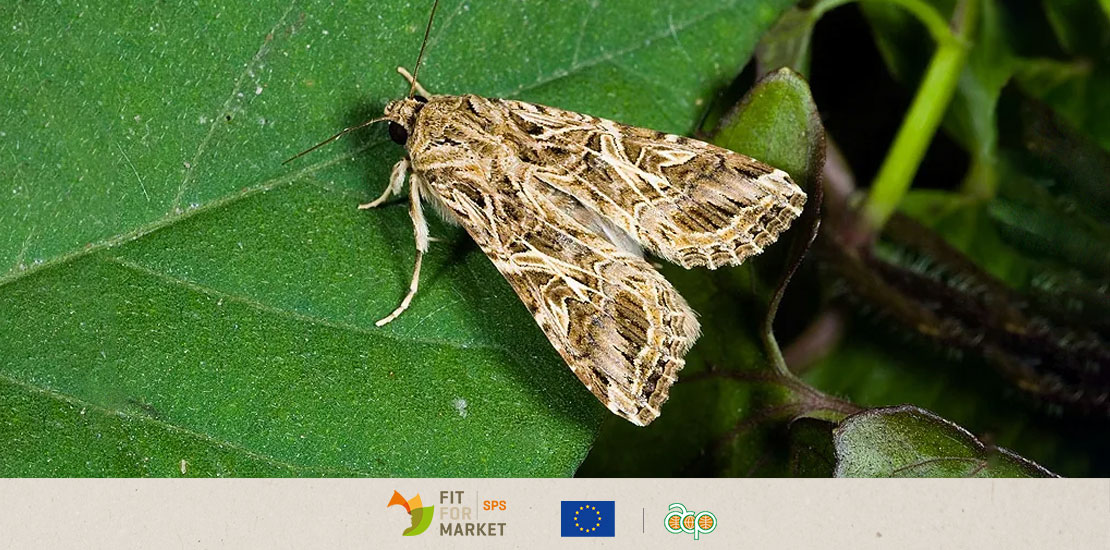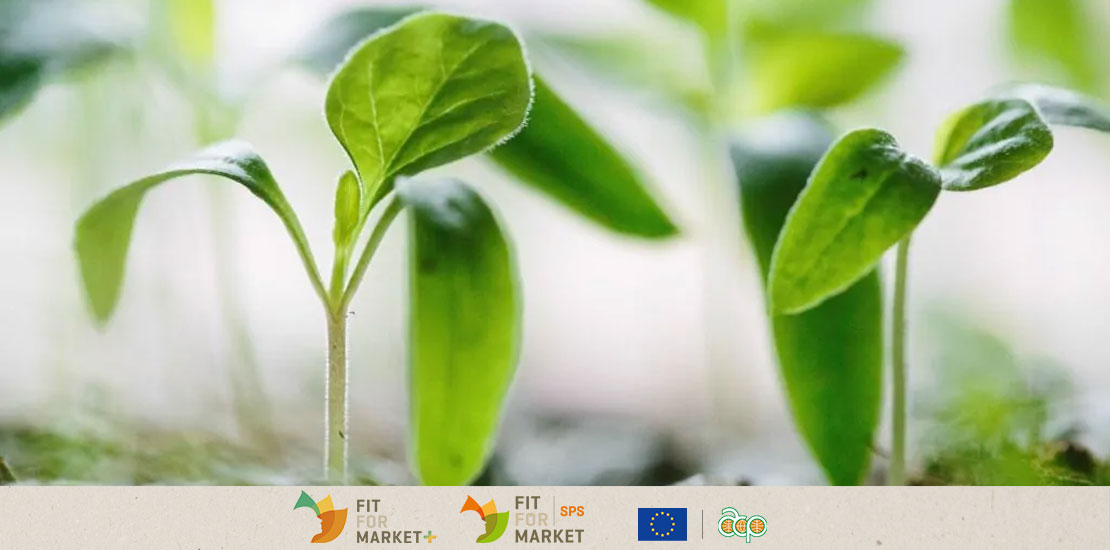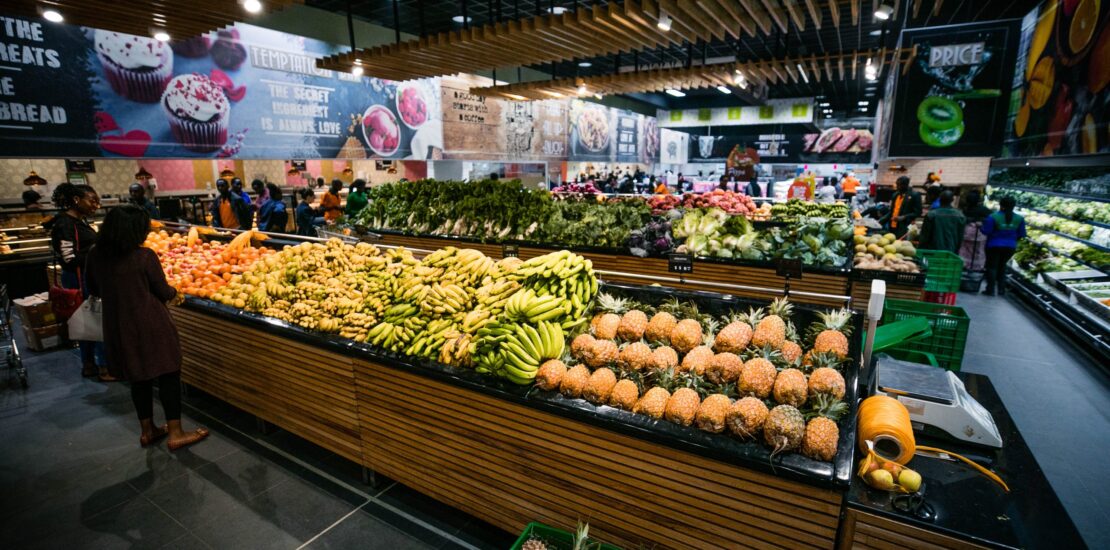The FFM+ programme is running at full speed on the ground: 17 OACPS member countries were visited this month
- 04/12/2024
- Posted by: Sandra Borma
- Category: News
No Comments The FFM+ programme is running at full speed on the ground: 17 OACPS member countries were visited this month The FFM+ programme is running at full speed on the ground, with 17 OACPS member countries visited this month. In total, COLEAD has received almost 1,100 applications for support and has implemented more than 500 development projects since the launch of the FFM+ programme. In November, COLEAD carried out technical missions in 17 countries as part of the FFM+ programme.… +
The FFM+ programme is running at full speed on the ground: 17 OACPS member countries were visited this month The FFM+ programme is running at full speed on the ground, with 17 OACPS member countries visited this month. In total, COLEAD has received almost 1,100 applications for support and has implemented more than 500 development projects since the launch of the FFM+ programme. In November, COLEAD carried out technical missions in 17 countries as part of the FFM+ programme.… +Capacity building for plant health experts
- 19/08/2022
- Posted by: Sandra Borma
- Category: Cameroon, Caribbean, Ethiopia, Gambia, Ghana, Kenya, Mauritius, Pacific, Rwanda, Uganda, Zimbabwe
 A series of capacity building workshops for plant health experts (12 French- and 12 English-speaking experts) started in August 2022. The objective of the workshops is to broaden the pool of COLEACP experts capable of carrying out technical assistance missions and accompanying ACP competent authorities and other stakeholders. The workshops focus mainly on three cross-cutting themes: (i) pest surveillance; (ii) pest risk analysis – establishment and updating of lists of regulated pests; (iii) official control systems (import and export) –… +
A series of capacity building workshops for plant health experts (12 French- and 12 English-speaking experts) started in August 2022. The objective of the workshops is to broaden the pool of COLEACP experts capable of carrying out technical assistance missions and accompanying ACP competent authorities and other stakeholders. The workshops focus mainly on three cross-cutting themes: (i) pest surveillance; (ii) pest risk analysis – establishment and updating of lists of regulated pests; (iii) official control systems (import and export) –… +Amendments to EU plant health rules for False Codling Moth – July 2022
- 14/07/2022
- Posted by: Gaetan Dermien
- Category: ACP EN, News
 The COLEACP Flash info issued on 20th June (and our website) gives an overview of recent AMENDMENTS TO THE EU PLANT HEALTH LEGISLATION. The latest regulation introduces new rules for False Codling Moth, which will apply from 14 of July 2022. We have updated our Guidelines on the export of Capsicum from Africa to incorporate the latest changes, and this is now available from our e-library. You may also be interested in the recent updates of our guidelines on eggplant… +
The COLEACP Flash info issued on 20th June (and our website) gives an overview of recent AMENDMENTS TO THE EU PLANT HEALTH LEGISLATION. The latest regulation introduces new rules for False Codling Moth, which will apply from 14 of July 2022. We have updated our Guidelines on the export of Capsicum from Africa to incorporate the latest changes, and this is now available from our e-library. You may also be interested in the recent updates of our guidelines on eggplant… +Amendments to EU plant health rules for False Codling Moth – June 2022
- 16/06/2022
- Posted by: Gaetan Dermien
- Category: Africa, Angola, Benin, Burkina Faso, Burundi, Cameroon, Cape Verde, Côte d'Ivoire, Democratic Republic Of The Congo, Ethiopia, Ghana, Guinea, Israel, Kenya, Madagascar, Mali, Mauritius, News, Nigeria, Rwanda, Saint Helena, Senegal, Sierra Leone, South Africa, Tanzania, Togo, Uganda, Zimbabwe
 False Codling Moth (FCM, Thaumatotibia leucotreta) is listed as a priority pest under EU plant health regulations ((EU) 2019/1702). Unfortunately, as this pest has been intercepted on several host plants in recent months at EU border controls, stricter rules are now being introduced in a new regulation (EU) 2022/959 of 16 June 2022. It is expected that this will be applied in July 2022.1</. A draft of the new regulation was submitted to the WTO in April. Some amendments were… +
False Codling Moth (FCM, Thaumatotibia leucotreta) is listed as a priority pest under EU plant health regulations ((EU) 2019/1702). Unfortunately, as this pest has been intercepted on several host plants in recent months at EU border controls, stricter rules are now being introduced in a new regulation (EU) 2022/959 of 16 June 2022. It is expected that this will be applied in July 2022.1</. A draft of the new regulation was submitted to the WTO in April. Some amendments were… +Trinidad and Tobago: EUROCHAMTT–COLEACP collaboration
- 06/04/2022
- Posted by: Gaetan Dermien
- Category: Caribbean, News, Trinidad and Tobago
 The European Business Chamber in Trinidad and Tobago (EUROCHAMTT) and COLEACP have signed a Memorandum of Understanding to collaborate in delivering group training and promotion of market opportunities to the members of EUROCHAMTT and other fruit and vegetable producers in Trinidad and Tobago. The collaboration will benefit from EUROCHAMTT’s expertise, knowledge and networks in the horticulture sector in Trinidad and Tobago, and COLEACP’s experience throughout ACP countries and at EU level. The focus will be on capacity building and supporting… +
The European Business Chamber in Trinidad and Tobago (EUROCHAMTT) and COLEACP have signed a Memorandum of Understanding to collaborate in delivering group training and promotion of market opportunities to the members of EUROCHAMTT and other fruit and vegetable producers in Trinidad and Tobago. The collaboration will benefit from EUROCHAMTT’s expertise, knowledge and networks in the horticulture sector in Trinidad and Tobago, and COLEACP’s experience throughout ACP countries and at EU level. The focus will be on capacity building and supporting… +STDF Togo: Training for DPV inspectors on implementing official controls
- 26/12/2021
- Posted by: Sandra Borma
- Category: News, Togo
 Inspectors of Togo’s Plant Protection Directorate (DPV) took part in training on implementing official controls during November 2021. This distance learning via the COLEACP e-Learning Platform, part of the Project for the Strengthening of the National Phytosanitary Control and Certification System for Fruits and Vegetables in Togo, aimed at reinforcing the capacity of 20 DPV inspectors to carry out official control activities of plants and other regulated products. The aim was to train participants to the procedures and instructions established… +
Inspectors of Togo’s Plant Protection Directorate (DPV) took part in training on implementing official controls during November 2021. This distance learning via the COLEACP e-Learning Platform, part of the Project for the Strengthening of the National Phytosanitary Control and Certification System for Fruits and Vegetables in Togo, aimed at reinforcing the capacity of 20 DPV inspectors to carry out official control activities of plants and other regulated products. The aim was to train participants to the procedures and instructions established… +Strengthening fruit and vegetable exports and SPS in Togo
- 20/12/2021
- Posted by: Gaetan Dermien
- Category: News, Togo
 On 27 August, 40 representative of member companies of the Association of Producers, Processors and Exporters of Vegetables and Fruit of Togo (APROTELF) met in Lomé. Those attending the meeting included representatives of horticultural companies, the Plant Protection Directorate and GIZ/ProDRA (the German Development Agency’s Rural Development Programme). Participants discussed the status of fruit and vegetable exports from Togo. The country primarily exports pineapples, leafy green vegetables and some other local products to Europe. Togo’s fruit and vegetable exports to… +
On 27 August, 40 representative of member companies of the Association of Producers, Processors and Exporters of Vegetables and Fruit of Togo (APROTELF) met in Lomé. Those attending the meeting included representatives of horticultural companies, the Plant Protection Directorate and GIZ/ProDRA (the German Development Agency’s Rural Development Programme). Participants discussed the status of fruit and vegetable exports from Togo. The country primarily exports pineapples, leafy green vegetables and some other local products to Europe. Togo’s fruit and vegetable exports to… +EU approval not renewed for four key PPPs and other changes notified to WTO
- 16/12/2021
- Posted by: Gaetan Dermien
- Category: Afghanistan, Africa, Albania, Algeria, Andorra, Angola, Anguilla, Antigua and Barbuda, Argentina, Armenia, Aruba, Australia, Austria, Azerbaijan, Bahamas, Bangladesh, Barbados, Belarus, Belgium, Belize, Benin, Bermuda, Bhutan, Bolivia, Bosnia and Herzegovina, Botswana, Brazil, Bulgaria, Burkina Faso, Burundi, Cambodia, Cameroon, Canada, Cape Verde, Caribbean, Central African Republic, Chad, Chile, China, Colombia, Comoros, Cook Islands, Costa Rica, Côte d'Ivoire, Country, Croatia, Cuba, Cyprus, Czech Republic, Democratic Republic Of The Congo, Denmark, Djibouti, Dominica, Dominican Republic, Ecuador, Egypt, El Salvador, Equatorial Guinea, Eritrea, Estonia, Eswatini, Ethiopia, Faroe Islands, Federated States of Micronesia, Fiji, Finland, France, French Guiana, French Polynesia, Gabon, Gambia, Georgia, Germany, Ghana, Greece, Greenland, Grenada, Guadeloupe, Guam, Guatemala, Guinea, Guinea-Bissau, Guyana, Haiti, Headline, Honduras, Hong Kong, Hungary, Iceland, India, Indonesia, Iran, Iraq, Ireland, Israel, Italy, Jamaica, Japan, Jordan, Kazakhstan, Kenya, Kiribati, Kuwait, Kyrgyzstan, Latvia, Lebanon, Lesotho, Liberia, Liechtenstein, Lithuania, Luxembourg, Macao, Madagascar, Malawi, Malaysia, Maldives, Mali, Malta, Marshall Islands, Martinique, Mauritania, Mauritius, Mayotte, Mexico, Monaco, Mongolia, Montserrat, Morocco, Mozambique, Myanmar, Namibia, Nauru, Nepal, Netherlands, New Caledonia, New Zealand, News, Nicaragua, Niger, Nigeria, Niue, Northern Mariana Islands, Norway, Oman, Pacific, Pakistan, Palau, Panama, Papua New Guinea, Paraguay, Peru, Philippines, Poland, Portugal, Puerto Rico, Qatar, Republic of Korea, Republic of the Congo, Réunion, Romania, Russian Federation, Rwanda, Saint Helena, Saint Kitts and Nevis, Saint Lucia, Saint Vincent and the Grenadines, Samoa, San Marino, Sao Tome and Principe, Saudi Arabia, Senegal, Serbia and Montenegro, Seychelles, Sierra Leone, Singapore, Slovakia, Slovenia, Solomon Islands, Somalia, South Africa, Spain, Sri Lanka, Sudan, Suriname, Sweden, Switzerland, Syria, Taiwan, Tajikistan, Tanzania, Thailand, Timor-Leste, Togo, Tokelau, Tonga, Trinidad and Tobago, Tunisia, Turkey, Turkmenistan, Tuvalu, Uganda, Ukraine, Uncategorized, United Arab Emirates, United Kingdom, United States, Uruguay, Uzbekistan, Vanuatu, Venezuela, Vietnam, Yemen, Zambia, Zimbabwe
 Key points Famoxadone is no longer approved within the European Union (EU) as of September 2021. EU approval was not renewed for acrinathrin, prochloraz and indoxacarb and will expire at the end of December 2021. The EU has also notified the World Trade Organization (WTO) of its intention to adapt the conditions of approval of sulfoxaflor. How will ACP producers/exporters be affected? Non-renewal means that these PPPs can no longer be legally used within EU countries. This also has an… +
Key points Famoxadone is no longer approved within the European Union (EU) as of September 2021. EU approval was not renewed for acrinathrin, prochloraz and indoxacarb and will expire at the end of December 2021. The EU has also notified the World Trade Organization (WTO) of its intention to adapt the conditions of approval of sulfoxaflor. How will ACP producers/exporters be affected? Non-renewal means that these PPPs can no longer be legally used within EU countries. This also has an… +Update on EU MRL changes
- 15/12/2021
- Posted by: Gaetan Dermien
- Category: Africa, Angola, Belize, Benin, Botswana, Burkina Faso, Burundi, Cameroon, Cape Verde, Caribbean, Central African Republic, Chad, Comoros, Cook Islands, Côte d'Ivoire, Country, Democratic Republic Of The Congo, Djibouti, Dominica, Dominican Republic, Equatorial Guinea, Eritrea, Eswatini, Ethiopia, Fiji, Gabon, Gambia, Ghana, Guinea, Guinea-Bissau, Headline, Jamaica, Kenya, Kiribati, Lesotho, Liberia, Malawi, Mali, Mauritania, Mauritius, Mozambique, Namibia, News, Niger, Nigeria, Pacific, Papua New Guinea, Republic of the Congo, Saint Kitts and Nevis, Saint Lucia, Saint Vincent and the Grenadines, Sao Tome and Principe, Senegal, Sierra Leone, Sudan, Suriname, Tanzania, Timor-Leste, Togo, Tonga, Trinidad and Tobago, Tuvalu, Uganda, Vanuatu, Zambia, Zimbabwe
 Key points Since the start of 2021, there have been European Union (EU) maximum residue level (MRL) changes concerning 123 plant protection products (PPPs), compared with 59 in 2020. These changes refer to modifications to the previous regulation, and can be either an increase or lowering of the MRLs for certain foods. Since the latest Flash Info in August 2021, there have been changes to 40 PPPs, 13 of which are key for ACP horticulture (acrinathrin, ametoctradin, spinetoram, fludioxonil, fosetyl-aluminium,… +
Key points Since the start of 2021, there have been European Union (EU) maximum residue level (MRL) changes concerning 123 plant protection products (PPPs), compared with 59 in 2020. These changes refer to modifications to the previous regulation, and can be either an increase or lowering of the MRLs for certain foods. Since the latest Flash Info in August 2021, there have been changes to 40 PPPs, 13 of which are key for ACP horticulture (acrinathrin, ametoctradin, spinetoram, fludioxonil, fosetyl-aluminium,… +News digest: Agri-food markets, production and trade
- 06/12/2021
- Posted by: Gaetan Dermien
- Category: Africa, Avocados, Cameroon, Caribbean, Citrus fruits, Coffee, Fiji, Kenya, Mangoes, News, Nigeria, Pacific, Rwanda, South Africa, Tanzania, Uganda
 Agri-food Africa Rwanda: Rwanda plans to double its lending to agriculture Rwanda plans to double its lending to the agricultural sector from 5.2 to 10.4% by 2024. The goal is to modernise agriculture, which now accounts for one-third of Rwanda’s GDP. Small farms can rarely access financial services due to high interest rates (18-24% per year). Access to these loans will enable farmers to invest in new means of production and thus secure the food supply for a country whose… +
Agri-food Africa Rwanda: Rwanda plans to double its lending to agriculture Rwanda plans to double its lending to the agricultural sector from 5.2 to 10.4% by 2024. The goal is to modernise agriculture, which now accounts for one-third of Rwanda’s GDP. Small farms can rarely access financial services due to high interest rates (18-24% per year). Access to these loans will enable farmers to invest in new means of production and thus secure the food supply for a country whose… +
